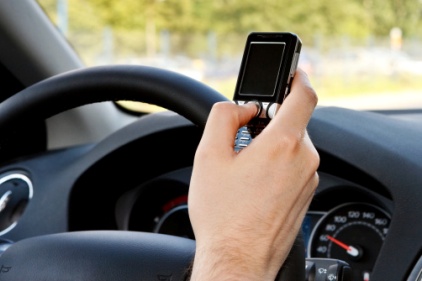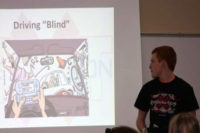Conn., Mass. get grants to help enforce texting/driving bans

 With laws in 39 states prohibiting texting while driving, there’s considerable agreement that the practice is dangerous. How to enforce such bans, though, is a process that is still under development.
With laws in 39 states prohibiting texting while driving, there’s considerable agreement that the practice is dangerous. How to enforce such bans, though, is a process that is still under development.
The National Highway Traffic Safety Administration (NHTSA) has announced that it will give $275,000 grants to Connecticut and Massachusetts to help them train police officers on better methods for spotting drivers who are texting, and to develop media techniques that alert the public to the perils of texting and driving.
Transportation Secretary Ray LaHood conceded that “there is still much work to be done,” in eliminating the transportation hazard.
In addition to the states with laws that address texting, 10 states have laws that prohibit the use of handheld cell phones while driving. Despite such laws, prior demonstration programs conducted in Hartford, Connecticut, and Syracuse, New York, found that it is more challenging to detect a driver texting behind the wheel compared to drivers talking on a handheld device. The vast majority of tickets issued under those programs were for handheld phone use – about five percent of the citations issued across both communities were for texting violations.
"While it is relatively easier for law enforcement to determine illegal handheld cell phone use by observing the position of the phone at the driver's ear, the dangerous practice of texting while driving is often not as obvious," said NHTSA Administrator David Strickland. "These two new demonstration programs will help identify real-world protocols and practices to better detect if a person is texting while driving."
The demonstration grants announced today by NHTSA call for Connecticut and Massachusetts to develop anti-texting enforcement protocols and techniques such as using stationary patrols, spotters on overpasses on elevated roadways and roving patrols, to test their effectiveness in four successive waves of high-visibility enforcement activities over a 24-month period. The results of these demonstrations will be documented for the benefit of other states which are facing the same challenges.
Looking for a reprint of this article?
From high-res PDFs to custom plaques, order your copy today!





